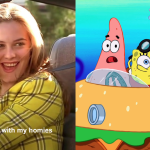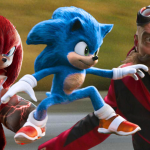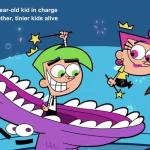
CONTENT WARNING: This article discusses child sexual abuse and graphic depictions of violence.
I think we can all agree The Last Of Us exceeded expectations as a video-game adaptation, but Episode 8 brought the show to new heights for me because of its depiction of female rage and trauma without fetishising the women who experience it. Something other HBO shows could learn from.
I’ll preface this with a disclaimer: I haven’t played the game. I went into The Last Of Us mostly blind, at the recommendation of my partner who adores it and wanted to watch me gasp at all the twists and turns. In Episode 8, titled “When We Are in Need”, he didn’t get that pleasure because I guessed pretty much guessed every twist it offered us — and for me, that was actually a sign that the show handled its content perfectly.
You see, I figured out pretty quickly that David (Scott Shepherd), the teacher-turned-preacher, was a pedophile attempting to groom Ellie (Bella Ramsey). I knew it from their first conversation, when he revealed he was a teacher, and when my partner asked me what gave it away, I couldn’t immediately put my finger on it.
I think initially it was subconscious — I might not have had the language to fully convey it that second, but I recognised him. I have seen this man before.
I have seen him in men that approached me as a teenager at train stations and feigned concern when they asked me if I would like a lift home. I have seen him in men I used to work with who took too keen of an interest in asking me questions about myself, my family, my relationships. And yes, I have seen him in men like teachers and other youth workers who just happen to gravitate towards young girls specifically.
In a testament to the show’s writing and Scott Shepherd‘s acting, I recognised the hungry look on David’s face when he surveyed Ellie and attempted to gain her trust because in some ways, I’ve been her. In this situation, anyway. And my heart dropped as I understood David’s motivations much earlier than she did.
David’s monologue towards the end of the episode, where he bathed Ellie in compliments about how smart and capable she was, how she was the only person in his club who was intellectually equal, was filled with textbook grooming comments that I imagine many former-teenage girls are all too familiar with (You’re just so mature for your age).
David essentially proposed he and Ellie rule side-by-side and offered her his protection and grace, with the alternative being that she would be eaten by his cannibalistic cult.
Instead, Ellie feigned innocence and allowed David closer to her, close enough to touch her, to caress her hands, to clasp them… and then she slammed them into the metal of her cage and broke his fucking fingers.
In the next scene, in a last-ditch attempt to save herself from being eaten, Ellie frantically cried out that she is Infected, and revealed that she Infected David too by pointing to a bite she left on his arm.
Astonishingly, David’s rage was not directed at possibly being Infected — he didn’t believe her for one second — but at the fact that Ellie might be special. That she could have some kind of resistance to Cordyceps. He was revolted at the idea that perhaps he — no, He — is ordinary and she, a teenage girl, is powerful and holds meaning bigger than she knows, and so he needed to dominate her to prove his status.
The turning of tables from this scene onwards is what made Episode 8 so perfect to me, because it unravelled David as not just a pedophilic cannibal, but really, at the centre of it all, a controlling narcissist. This is why he pursues little girls: because he views them as easy to dominate and control. But Ellie is anything but that, and the portrayal of her character in this episode is what makes it a feminist masterpiece, despite what happens to her.
When Ellie, a hunter, becomes hunted in that burning room, becomes prey, I felt it. I felt her terror as David stalked her, I felt her terror as he pounced and scrambled atop her, straddling her, told her his favourite part is when they struggle… it was terrifying and traumatic not just for Ellie, but for anyone that has been Ellie, anyone that has been a teenage girl out of her depth and cornered by a predatory man she can’t escape.
And then she does escape. She grabs a cleaver, and she murders David brutally. She climbs atop him and stabs him and stabs him and stabs him and stabs him. She ploughs that cleaver down until whatever is left under her is an unrecognisable mess, and then wanders off in a haze of bloodlust and terror before Joel (Pedro Pascal) is able to comfort her and deliver his soul-destroying “It’s me, baby girl”.
While that fight scene was meant to signify a shift in Ellie, a tragic loss of innocence as she enacted the very same violence Joel has been trying to keep her from witnessing, to me it was liberating.
It was the unconfined female rage of a girl who, for her whole life, has had little control of her circumstances. Those stabs weren’t just self defence, they represented an unleashing of angst, terror, fury at the life she has been barely surviving.
As someone who has previously been victimised by predatory men, I found great satisfaction in the brutal murder of David, but even more satisfaction in how consistently clever and resourceful Ellie was.
She was never depicted as helpless, even though she was just a little girl. Even when the situation looked impossible, we as viewers had faith in her ability to overcome.
The show didn’t fetishise her pain either, something other HBO shows like Game of Thrones and House of the Dragon have become notorious for. When those shows depict female suffering, they do so with a voyeuristic lens that often feels self-gratifying. Their female subjects’ trauma leaves them somehow more objectified and dehumanised, when it should be adding to their character and motivations.
At a time where fetishising female pain seems to be a trend, Ellie’s violent outburst in The Last Of Us Episode 8 felt feminist, even if it wasn’t meant to. And for women like me who couldn’t defend ourselves when we were faced with similar circumstances, it felt cathartic too.
Help is available.
- If you require immediate assistance, please call 000.
- If you’d like to speak to someone about sexual violence, please call the 1800 Respect hotline on 1800 737 732 or chat online.
- Under 25? You can reach Kids Helpline at 1800 55 1800 or chat online.



